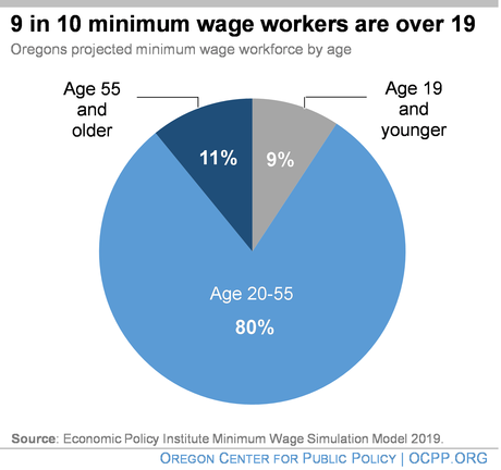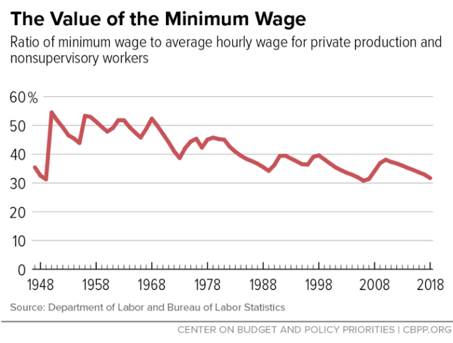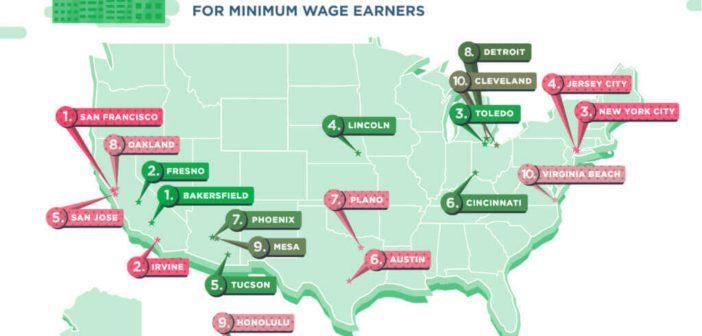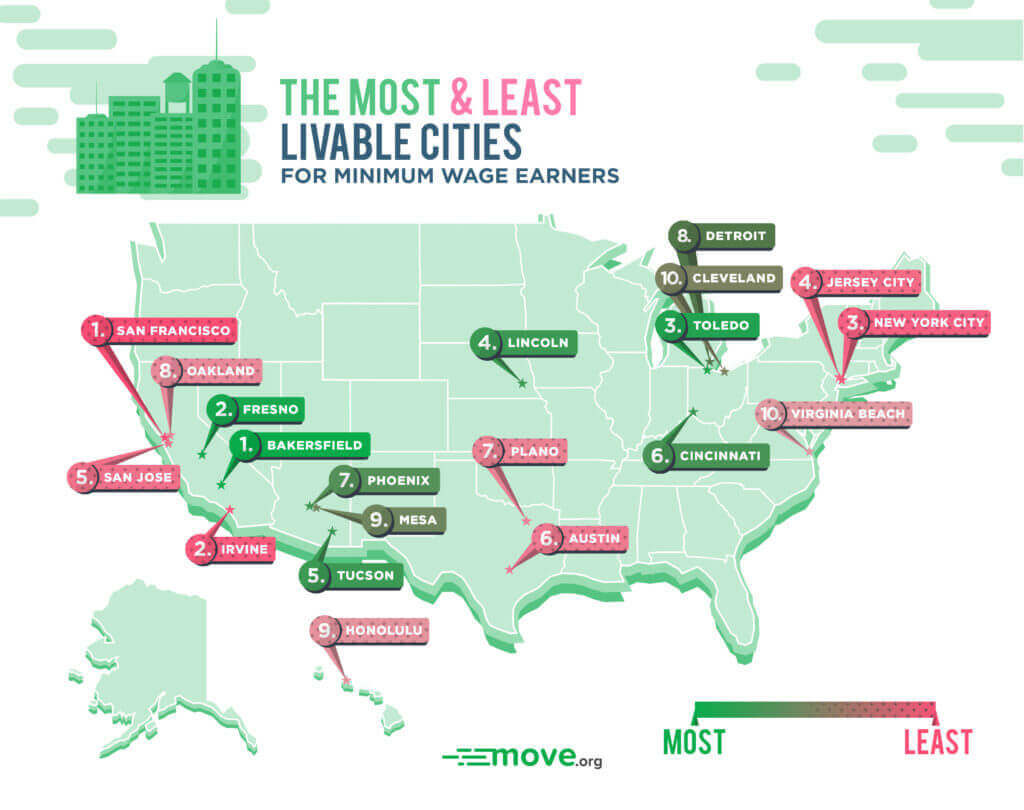By: Lester Williams Jr., Contributing Writer
According to the International Labour Organization, minimum wage is defined as the smallest amount of pay that is mandatory for an employer to give to his or her employees for their services. Additionally, the minimum wage cannot be lowered by outside means, like an employee’s contract.
Although minimum wage is effective at creating restrictions on an employee’s base pay for his or her service, state and federal laws mandate different amounts. This means that organizations around the states have different minimum wage standards.

Age is one of many factors that affect an employee’s access to minimum wage. (Oregon Center for Public Policy)
After 2009, the federal law set the minimum wage to $7.25 per hour. Florida is among 29 American states where the minimum wage has already risen above the federal rate. However, using the ballot system, Florida citizens in the upcoming 2020 election will be able to vote “yes” to raise the minimum wage to $15 per hour, or “no” to keep Florida’s minimum wage at the current $8.56 per hour.
A petition to increase Florida’s minimum wage was started by John Morgan in 2018. Morgan—the leader of the organization Florida For a Fair Wage—argued that the state of Florida needs to ensure that a majority of citizens have access to a living wage, which is the lowest income needed to fund the basic needs of a person and or family without the government.

The Status of the Polls for St. Leo University and St. Pete Polls in 2019 (Ballotpedia)
According to Ballotpedia, in order to participate in Morgan’s petition a person must “be at least 18 years of age, a citizen of the United States, and a legal resident of Florida and the county in which he or she intends to vote.”
For the petition to bring about change, 766,200 valid signatures were due Feb. 1, 2020. If the petition generates the necessary number of positive votes, Florida’s minimum wage will gradually increase every year, up until 2026.

The ratio of the minimum wage for private businesses and non-supervised workers over A 70-year timespan. (Center on Budget and Policy Priorities)
The final verdict, according to Phoneweek, is scheduled to be decided in Nov. 2020. At Saint Leo University, 62.3% of the voters are in favor of the minimum wage increase.
Although an increase in Florida’s minimum wage can be beneficial to employees who need to support themselves and their families, arguments against the increase need to be considered by the citizens of Florida.
The president and CEO of the Florida Restaurant and Lodging Association, Carol Dover, said that to meet the demands of an increase in minimum wage, businesses will have to cut costs. This includes limiting the number of hours an employee can work or reducing the number of employees.
Regardless of which side you take, alterations in Florida’s minimum wage will play a critical role in the future of the state’s economy, which all Floridians must adjust to for the sake of maintaining their livelihood.






